In Episode #125 of the PricePlow Podcast, Ben and Mike welcome Michael Alfaro, the founder and CEO of Master Foods Lab, a specialty contract manufacturer in the supplement industry that focuses on functional foods and high-protein snacks.
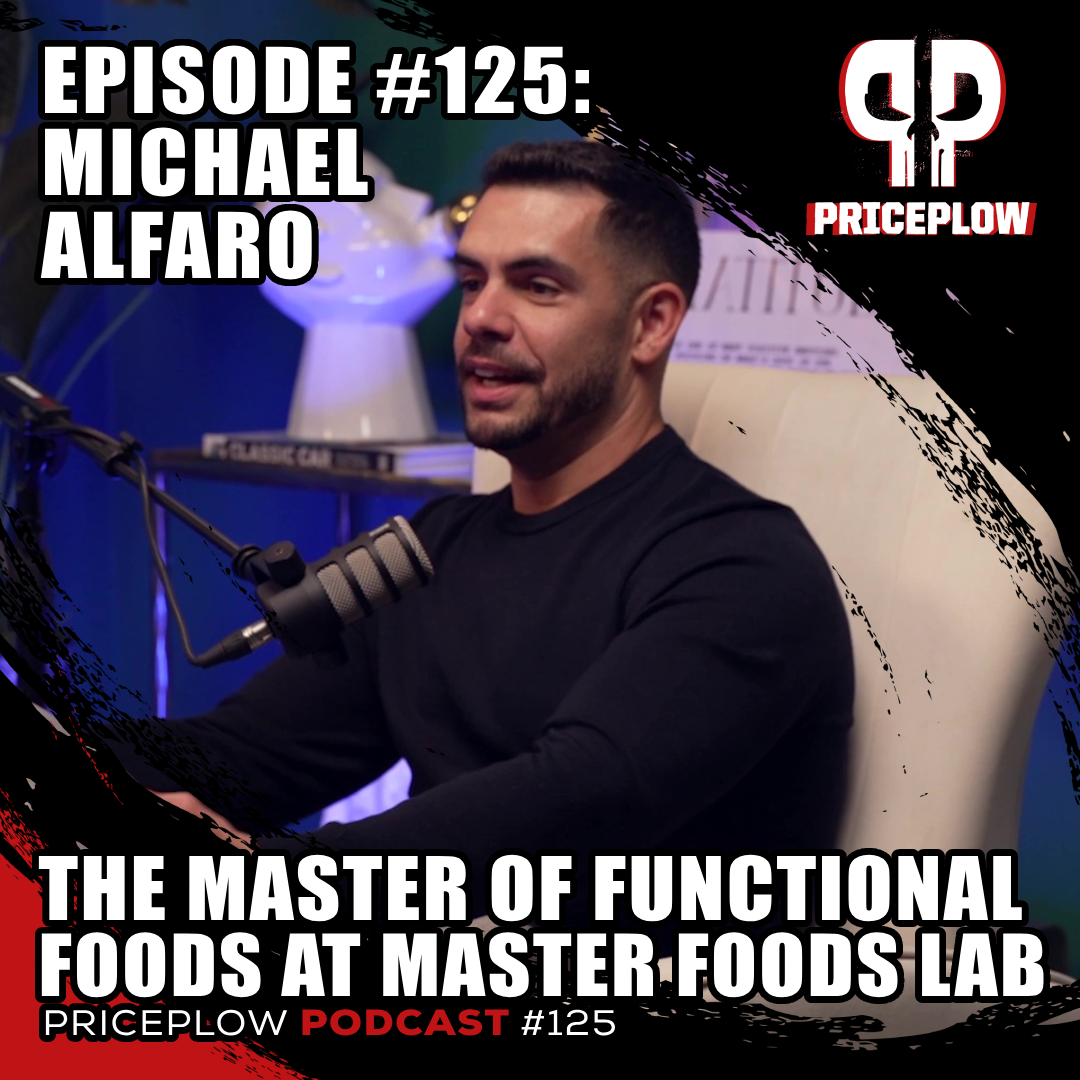
Michael Alfaro, founder/CEO of Master Foods Lab, brought us to his facility in Miami, FL to join PricePlow Podcast for Episode #125 to talk functional foods, high-protein snacks, protein bars, and everything in between! Master Foods Lab is the premier manufacturer for all kinds of high-protein snacks.
The focus of the podcast is on functional foods, specifically baked goods, which we delve into after a tour of the Master Foods facility and some flavor tastings. But first, we get into Michael's business background, which started in CrossFit, and eventually learn why he's called the "Head Rhino".
This is a long episode, so we dive heavily into a lot of ingredient science. It will explain a lot of common questions that brands have when attempting to create a new functional food. For instance, Michael answers why you can't just easily make a collagen protein bar that has 100% collagen protein.
Things also get spun when Michael asks Ben and Mike a question that takes the podcast into a different direction regarding the success of supplement businesses and the role of influencers.
It's an all-around great episode, and more content will be coming out, so make sure you subscribe to PricePlow's Master Foods Lab news alerts at the end so you don't miss out on the other parts!
Subscribe to the PricePlow Podcast on Your Favorite Service (RSS)
https://blog.priceplow.com/podcast/michael-alfaro-master-foods-lab-125
Video: Michael Alfaro of Master Foods Lab in Miami, FL
Podcast: Play in new window | Download (Duration: 2:31:48 — 155.7MB)
Detailed Show Notes: Michael Alfaro, Master Foods Lab
-
0:00 - Introductions
This is one you may want to watch on YouTube, if only to understand the setting.
Michael begins by sharing his entrepreneurial journey, starting from his early ventures into selling and his significant contribution to the fitness industry, particularly through CrossFit. He discusses the evolution of his career, from opening the first CrossFit in South Florida in 2007 to developing digital content platforms for fitness.
-
9:30 - Transition to functional foods
Michael discusses his transition from his previous ventures into the realm of functional foods and consumer packaged goods (CPG). After a partial exit from his last company, Michael moved back to focus on health and wellness, a field deeply ingrained in his mission to positively impact millions of lives. He initially resisted returning to the fitness industry, preferring instead to explore opportunities in manufacturing functional foods. His journey into this sector began with the launch of a snack brand in collaboration with Ainsley Rodriguez (321 Glo), which faced challenges when their manufacturer went under due to certification issues.
Undeterred, Michael invested in equipment to produce nut butters, kickstarting his venture into functional foods. He initially rented space in a bakery to comply with sanitary regulations before moving to a larger co-shared space to accommodate growth. Michael emphasized his desire to build this new venture without relying heavily on external investors, focusing instead on using personal capital and support from close family and friends, allowing him to maintain control over the business's direction.
-
16:30 - The launch of Master Foods Lab
By the end of 2021, Michael had transitioned from manufacturing nut butter for a specific brand to launching his own company, Master Foods Lab, in a 16,000 square foot facility that was formerly used by Panera Bread to bake goods for South Florida locations. He secured this space after a competing brand initially won it, only for the deal to fall through, allowing Michael to acquire it at a competitive price and with favorable lease terms.
Michael and his wife, along with a small team, initially worked in a commercial kitchen, highlighting the hands-on approach that provided him with a solid understanding of manufacturing challenges.
Michael's approach to food focuses on creating enjoyable, better-for-you options that don't sacrifice taste for health, drawing inspiration from his "fat kid mentality" for indulgence with a healthier twist. This perspective reflects a broader trend in the fitness and food industry towards more relaxed, enjoyable dietary options that still offer functional benefits.
-
25:30 - Manufacturing challenges
Michael delves into the intricacies of transitioning a hypothetical high-stim pre-workout brand into the functional foods space. He emphasizes the importance of understanding the brand's core consumer demographic and distribution channel strategy to tailor the product effectively.
For instance, a high-stim pre-workout brand targeting gym-goers in their 30s and 40s would require a different product and formula approach compared to a female-focused beauty brand. Michael suggests a pre and post-workout combo in different formats, such as a functional food with active ingredients for recovery.
The discussion also touches on the challenges and opportunities within the functional food manufacturing industry, highlighting the scarcity of quality, reliable manufacturers and the complex nature of producing functional foods at scale. Michael shares his firsthand experience transitioning from small-scale production to operating a significant manufacturing facility, facing and overcoming challenges such as ensuring product consistency, shelf stability, and dealing with environmental factors like humidity in South Florida.
-
36:45 - Innovation as a core driver
Michael emphasizes the importance of perfecting products from the initial order, accepting that this meticulous approach often means operating at a loss due to the need for pilot batches, slower production speeds, and the discarding of imperfect goods. Michael's philosophy is focused on long-term relationships and continuous improvement, rather than being the cheapest option in the market.
He positions his business as an innovation lab, prioritizing unique, thought-driven products over mass production of low-margin, "me-too" items. This approach involves a more hands-on, less automated production process and aligns with brands looking for distinctive, high-quality functional foods. Michael's dedication to crafting products with care and precision reflects a deeper passion for creating food items that are not only functional but also bring joy and satisfaction to consumers, setting his operation apart from high-volume, low-cost manufacturers.
-
43:15 - Experimentation and brand alignment
Michael emphasizes the importance of aligning production capabilities with the growth and demands of customer brands, ensuring that lead times remain reasonable to avoid tying up too much capital in inventory. Michael highlights his commitment to staying ahead of his customers' growth, aiming to fulfill orders within a ten-week lead time to maintain product freshness and efficiency.
Michael shares his enthusiasm for creating new and unique products. He uses the example of a layered cupcake to illustrate his process of innovation, focusing on how different textures and components can create a standout product. This approach involves considering the base ingredients, such as almond or coconut flour, and experimenting with fillings and coatings to achieve the desired taste and texture.
-
49:30 - Ingredient science
Michael delves into the complexities of baking science, emphasizing how minor adjustments in ingredient ratios can significantly affect the texture and consistency of baked goods. He explains that even with a base formula containing common ingredients like almond flour, butter, and eggs, altering the proportions of added proteins such as whey protein isolate (WPI), whey protein concentrate (WPC), and collagen can drastically change a product's texture. Alfaro highlights the importance of understanding each ingredient's role and experimenting with percentages through research and development to achieve the desired product characteristics.
Michael points out the importance of ingredients like collagen not just for their nutritional benefits but also for their impact on texture, contributing to the chewiness and enjoyment of products like cookies. This focus on balancing taste, texture, and nutritional content illustrates the nuanced approach needed to innovate in the functional foods market.
-
58:30 - Ethics and liability in food manufacturing
Michael discusses the responsibility and ethical considerations involved in food manufacturing, particularly regarding labeling and health claims. He emphasizes the importance of staying within regulatory guidelines for claims that are strictly monitored by the FDA, such as low sugar, clean, or low-fat claims. Michael clarifies that while he tries to stay out of marketing strategies that are not directly related to health or nutritional claims, he offers guidance to ensure brands do not make unsubstantiated claims that could lead to legal issues.
The conversation also touches on the liability aspect of manufacturing. Michael points out that, although the ultimate responsibility for product claims rests with the brand selling the product to consumers, his reputation and the trust within the health and wellness industry are paramount. He values his reputation above potential short-term gains, indicating a commitment to ethical practices and quality manufacturing. This approach not only helps to protect his business but also contributes to maintaining high standards within the industry.
-
1:03:30 - A forward-looking approach to functional foods
Michael emphasizes the importance of aligning product development with brand values and consumer expectations, respecting brand privacy, and the strategic decision-making behind ingredient selection and product positioning. Michael highlights the complex dynamics of manufacturing, including the opportunity costs associated with dedicating line time to specific customers and the importance of selecting quality partners who align with his vision for innovation and quality.
The conversation also touches on the challenges and opportunities of marketing and labeling in the functional food space. Michael clarifies his role in advising brands on regulatory compliance and marketing claims, underscoring his commitment to maintaining a reputable and ethical business practice. He expresses a personal desire to be recognized as a thought leader in the functional food industry, driving innovation forward through unique and beneficial products.
On this trip, we learned that there are certain types of chocolate that can add a gram of protein to the bar - adding to the total number or making it a bit easier to meet macros on the inside of the bar
Furthermore, the discussion explores the consumer's perception of added functional ingredients, such as collagen, and the balance between creating products with specific functional benefits versus appealing to a broader market. Michael and the hosts contemplate the future of functional foods, considering the potential for novel ingredients and formulations to create products that offer more than just basic nutritional benefits, aiming for a deliberate and purposeful consumption experience.
-
1:13:45 - Trends
Michael suggests that while ingredients like collagen experience peaks in popularity, they may stabilize over time, similar to how creatine has remained a staple in sports nutrition due to ongoing consumer education and trust. The conversation also touches on the challenges of innovating within strict nutritional guidelines, such as incorporating high amounts of collagen into a product without compromising texture or exceeding calorie limits.
Michael shares a specific example where a brand requested a cookie with 10 grams of collagen within a 110-calorie limit, illustrating the complexities involved in balancing ingredient proportions to meet specific dietary targets while maintaining desirable taste and texture.
-
1:19:15 - Collagen and plant-based alternatives
Michael explains that while certain ingredients like collagen may experience peaks in popularity, their utility in product formulation, especially for their functional properties rather than just their nutritional content, remains significant. Michael shares insights into the challenges of creating products with specific nutritional targets, such as a high collagen content within a low-calorie limit, and the necessity of balancing various ingredients to achieve the desired texture and taste without compromising the product's nutritional profile.
The conversation also touches on vegan and dairy-free alternatives, highlighting the complexity of formulating with plant-based proteins like pea and rice protein to maintain palatable textures and flavors. Michael discusses the importance of rigorous testing, especially with novel ingredients or formulations, to ensure product stability and quality over time.
-
1:24:15 - Research and development
Michael discusses the intricacies of research and development (R&D) in the functional food industry, particularly when it comes to innovation and bringing unique products to market. He emphasizes the importance of having a direct path to marketability for R&D projects, noting that while he is open to taking on R&D work, it needs to be for projects that have a clear goal and potential for success. Michael also mentions the significance of relationships in deciding whether to charge for R&D, stating that he might forego R&D fees for brands introduced through trusted connections or those with promising market potential.
Furthermore, Michael highlights his commitment to creating unique products for each brand, even if it means additional R&D time and costs on his part. This approach not only protects the originality of the products but also aligns with his ethical standards and desire to advance the functional food industry. He acknowledges the efficiency and profitability benefits that come with manufacturing similar products for different brands but chooses to prioritize innovation and brand differentiation.
-
1:30:15 - Testing, uniqueness, and brand protection
Michael discusses the nuanced process of product development and innovation within the functional food space. He emphasizes the significance of initial small-scale testing and formulation as a foundational step for manufacturers to refine and optimize products for market viability. Michael highlights his commitment to supporting brands with genuine market potential, differentiating between projects with a clear path to marketability and those merely "playing around" with product ideas. He values relationships and strategic collaborations, indicating a willingness to invest in brands recommended by trusted connections without imposing R&D fees, viewing this as an investment in the brand's future success.
Moreover, Michael touches on the ethical considerations of product uniqueness and brand protection. He strives to provide each brand with a distinctive product, even if it means additional R&D effort on his part, to ensure market differentiation and protect the brand's innovation.
-
1:38:45 - Betting on brands
The group explores the complexities of intellectual property (IP) and product development within the functional food industry. He clarifies that ownership of a product's formulation depends on the nature of the contract between the manufacturer and the brand. If a brand hires a manufacturer to develop a formula or brings an existing formula for production, the brand retains rights to the formula. However, if the manufacturer significantly contributes to the product's development without charging for R&D time, they may hold onto the IP for a specified period until certain business milestones are met, eventually transferring ownership to the brand.
The discussion also delves into the challenges brands face when innovating and the potential for manufacturers to step in when a brand struggles or goes out of business. Michael expresses a commitment to supporting entrepreneurs and betting on the potential of their brands, highlighting his approach to nurturing innovations and ensuring they reach the market successfully.
-
1:49:30 - The influence of TikTok
Ben and Michael discuss the rapid pace of trends in the consumer packaged goods (CPG) industry, particularly how they're amplified and sped up by platforms like TikTok. They touch on how TikTok has revolutionized the way products, such as Berberine, gain overnight popularity, contrasting the agility of online sellers and influencers with the slower, more traditional retail chains like GNC. Michael points out the strategic use of TikTok Shop by subsidizing sales to attract both sellers and buyers, enhancing the platform's e-commerce ecosystem. They delve into the future of TikTok Shop and speculate on its sustainability and impact on trends.
The conversation also covers the role of content creation in brand development and marketing, emphasizing the importance of engaging and authentic content. Michael shares his perspective on leveraging social media and content to educate and connect with consumers, highlighting the unique position of manufacturers in contributing to the narrative around product innovation and consumer engagement.
-
1:59:45 - Engaging content
Ben, Mike, and Michael delve into the nuances of what makes content engaging and valuable, especially in niche markets. They discuss the challenge of making technical, industry-specific topics accessible and interesting to a broader audience. Using examples like explaining why a brand's brownies might mold, they highlight the importance of framing content in a way that captures attention while still providing educational value.
How much glycine can Mike pack into a brownie, and why? Stay tuned to PricePlow's content to find out
The conversation shifts to the importance of strategy in brand success, emphasizing that having a deliberate, well-executed plan that combines effective marketing, solid operations, and product integrity is key. They explore how strategic partnerships, like Ghost's with GNC, can leverage existing channels for growth.. This is contrasted with AstroFlav's strategy of maintaining a much stricter direct-to-consumer strategy. Both strategies have pros and cons, and there are many routes to success.
-
2:10:00 - Elements of brand success
Ben, Mike, and Michael discuss the critical elements of brand success, emphasizing the importance of a well-rounded team beyond just the brand owners. They highlight the necessity of having experts in various fields within a company to ensure all aspects of the business run smoothly.
The conversation shifts to the impact of experience and strategic planning in navigating the competitive landscape of the sports nutrition and functional foods industry. They explore the notion that being deeply entrenched in the sports nutrition industry isn't always necessary for success; rather, having a strong entrepreneurial skill set and the ability to build a business effectively can be just as crucial.
They discuss the role of influencers like Derek from Gorilla Mind, who leverage their substantial online followings to drive sales, demonstrating that having a dedicated community can significantly impact brand growth. The discussion concludes with the idea that reaching the mainstream consumer market, such as through placements in Target or Sam's Club, represents a significant opportunity for functional food brands to achieve substantial growth.
-
2:20:45 - Wrap Up
Ben, Mike, and Michael discuss the potential of the creator economy in disrupting traditional CPG brands through the power of community and personal connection between creators and their audience. They highlight examples like Mr. Beast and Blippi, demonstrating how creators leverage their platforms to establish a bond with their audience, leading to successful product launches. The conversation shifts to the importance of community and how having a dedicated follower base can significantly impact product launches and brand growth.
They also touch on the notion of innovation in functional foods, suggesting that there's still much room for creativity in making everyday foods better and more purpose-driven. They discuss the potential for brands to innovate by adding functional benefits to traditional foods, making them more appealing to a wider audience, including mainstream consumers.
The discussion wraps up with Michael telling audience members where they can keep up to date with Master Foods Lab, noting their Instagram handle (@masterfoodslab), as well as his personal account (@headrhino). Links are below!
Where to Follow Michael and Master Foods Lab
- Michael Alfaro on Instagram: @HeadRhino
- Michael Alfaro on LinkedIn
- Master Foods Lab Website: https://masterfoodslab.com/
- Master Foods Lab on Instagram: @MasterFoodsLab
And of course, sign up for Master Foods Lab news alerts on PricePlow - we have a whole lot more coming, including a plant tour, tasting panel, rapid-fire Q&A series, and a cool product ideation and creation session in the lab!
And if anyone wants some support making functional foods, hit us up for unique ideas -- we'll give our opinions and help you beta-test.
Thanks to Michael for having us, this trip was a total blast!
As always, subscribe to the PricePlow Podcast on your favorite platform, and if you enjoy it, leave us a great review!




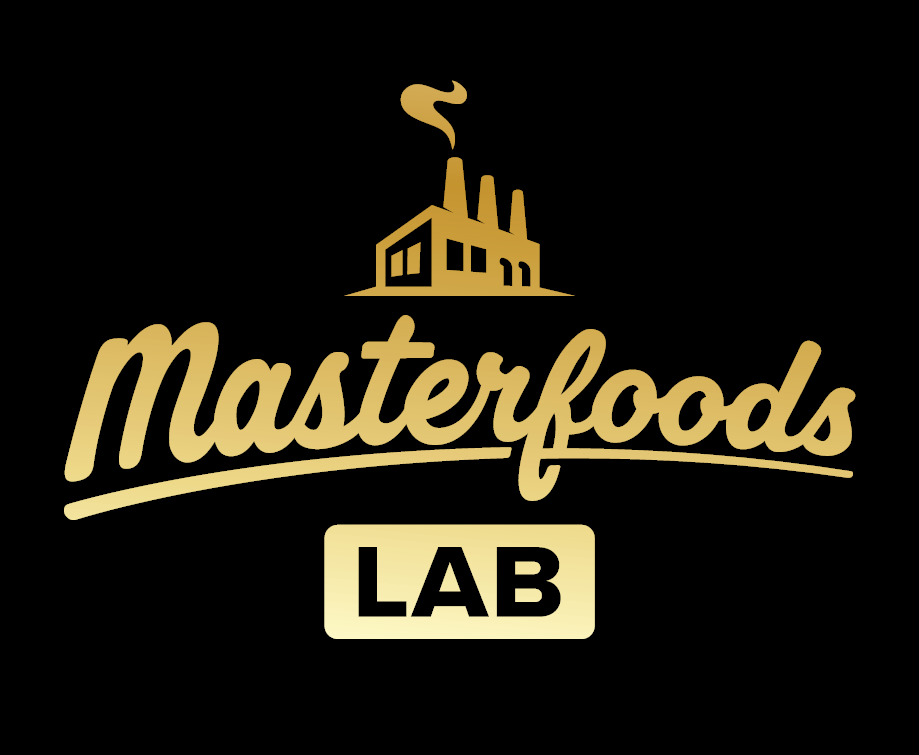

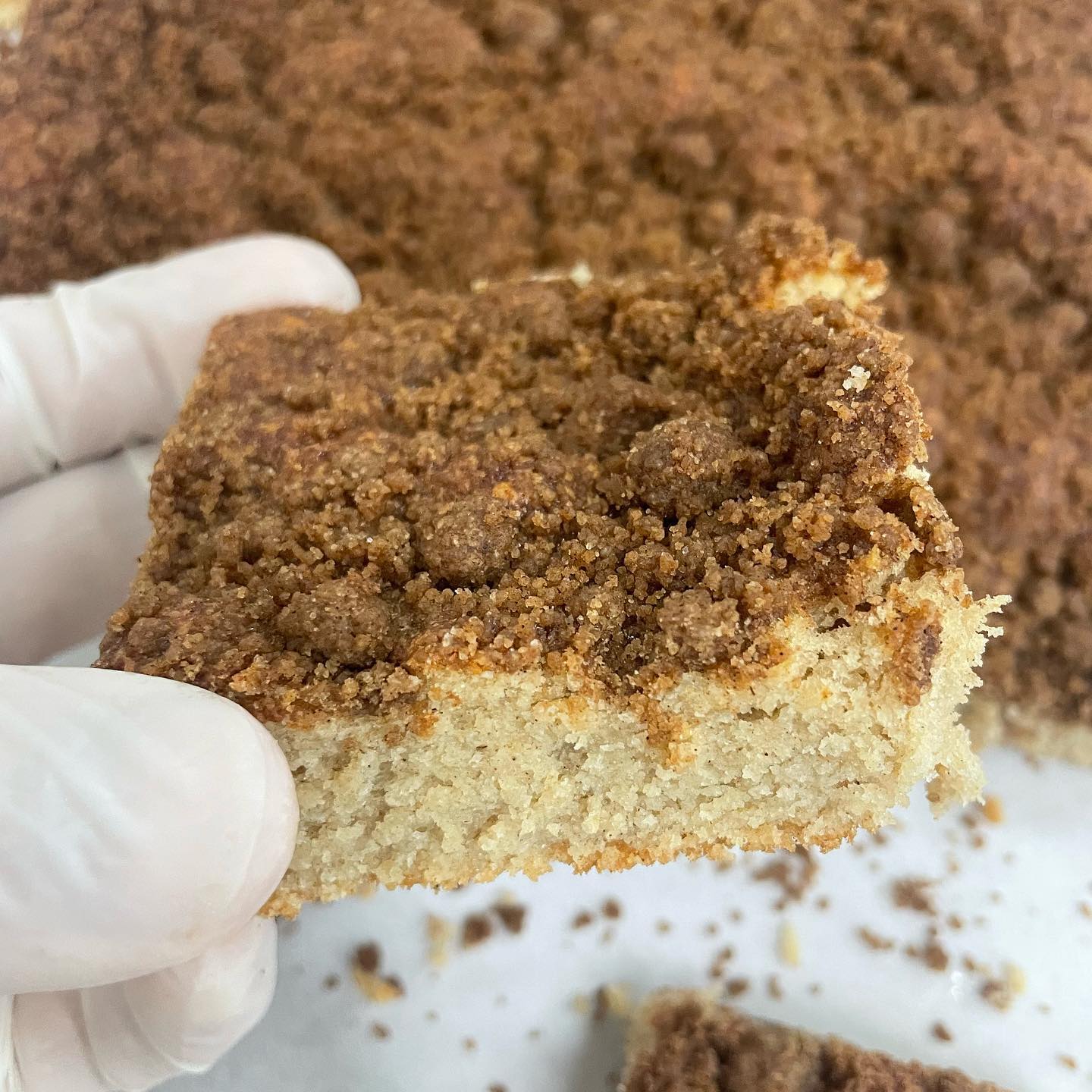
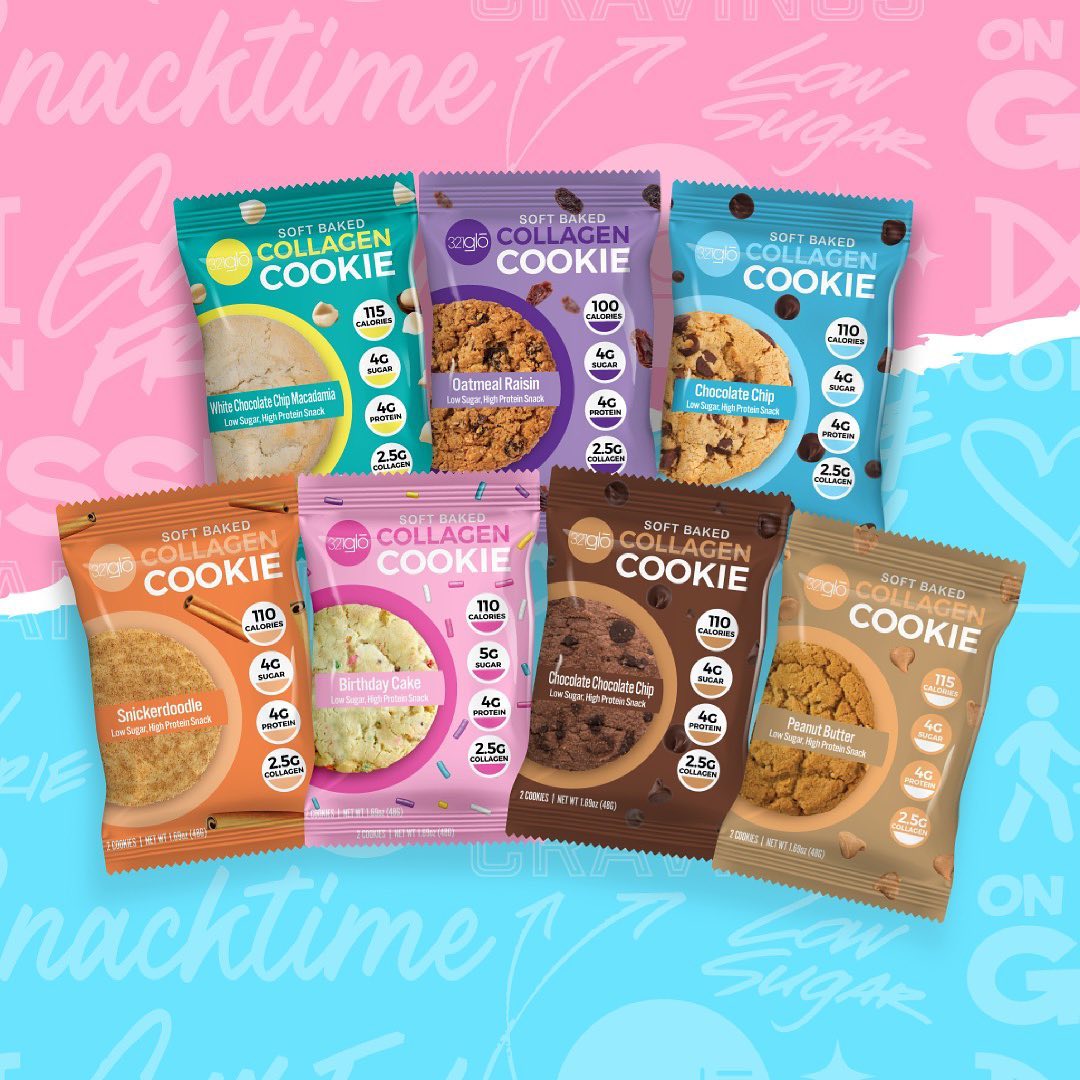

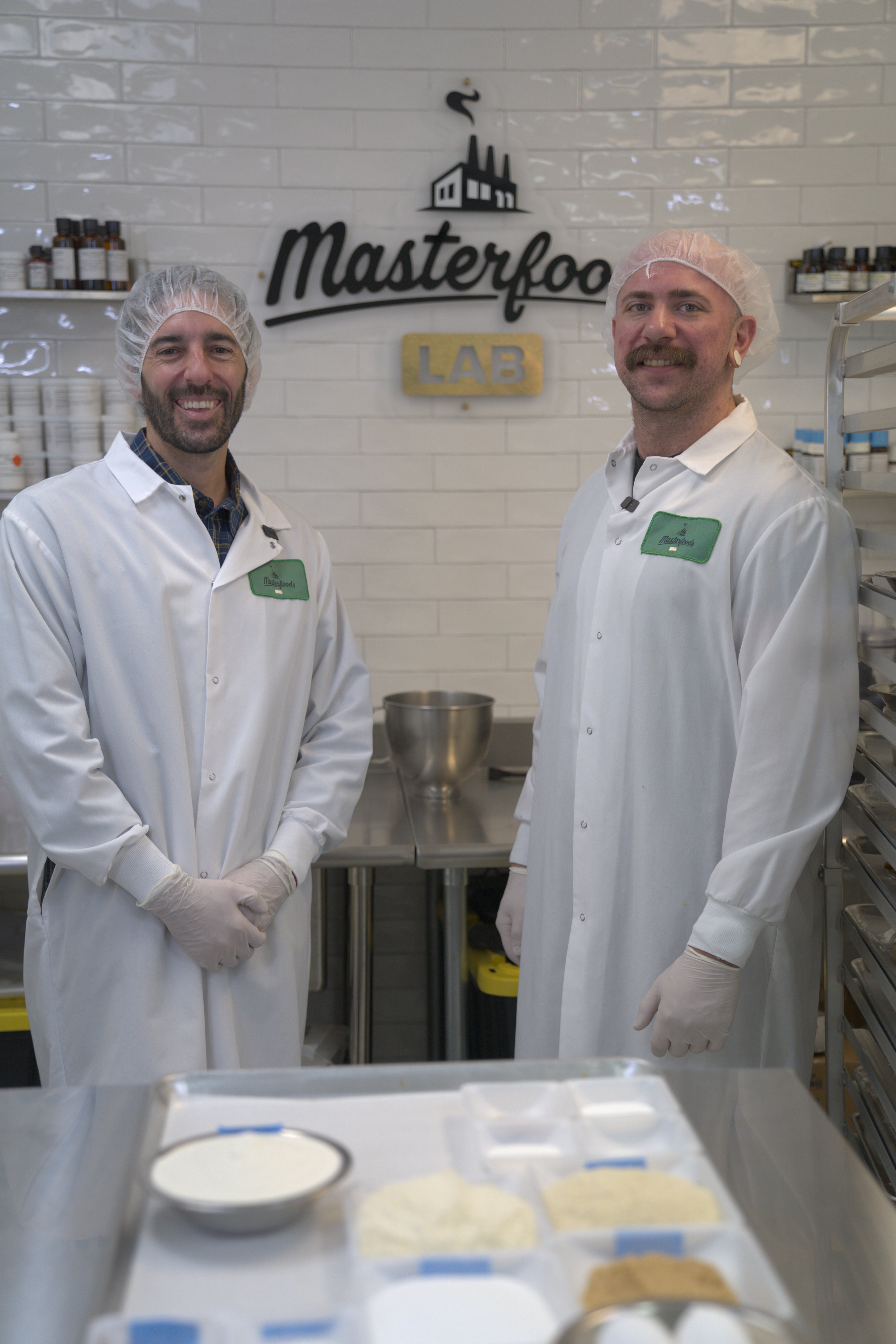
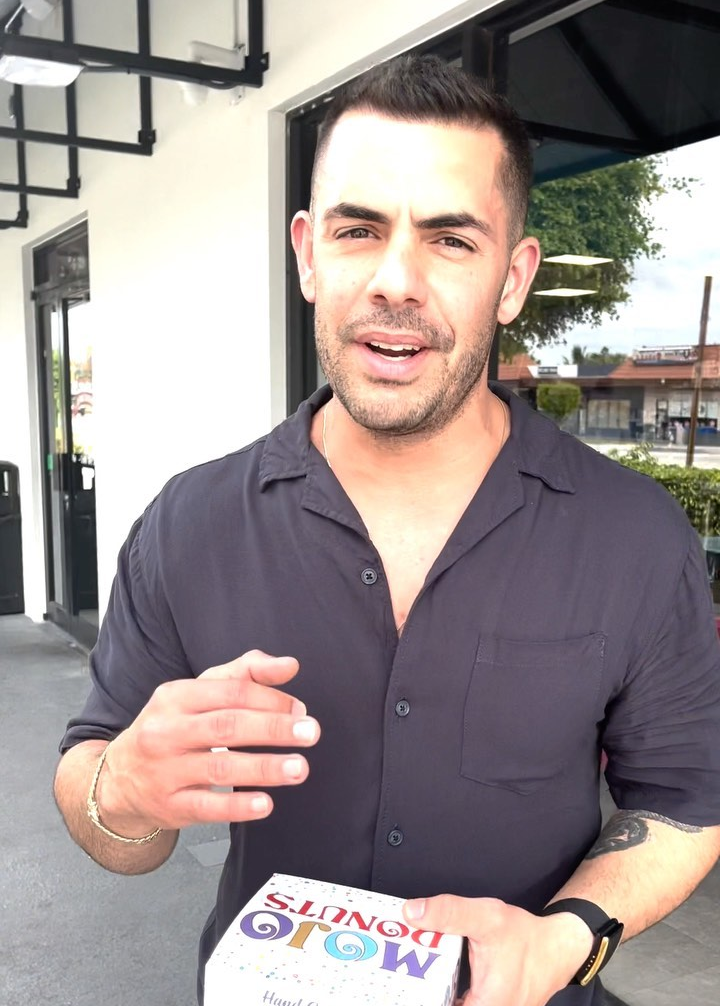
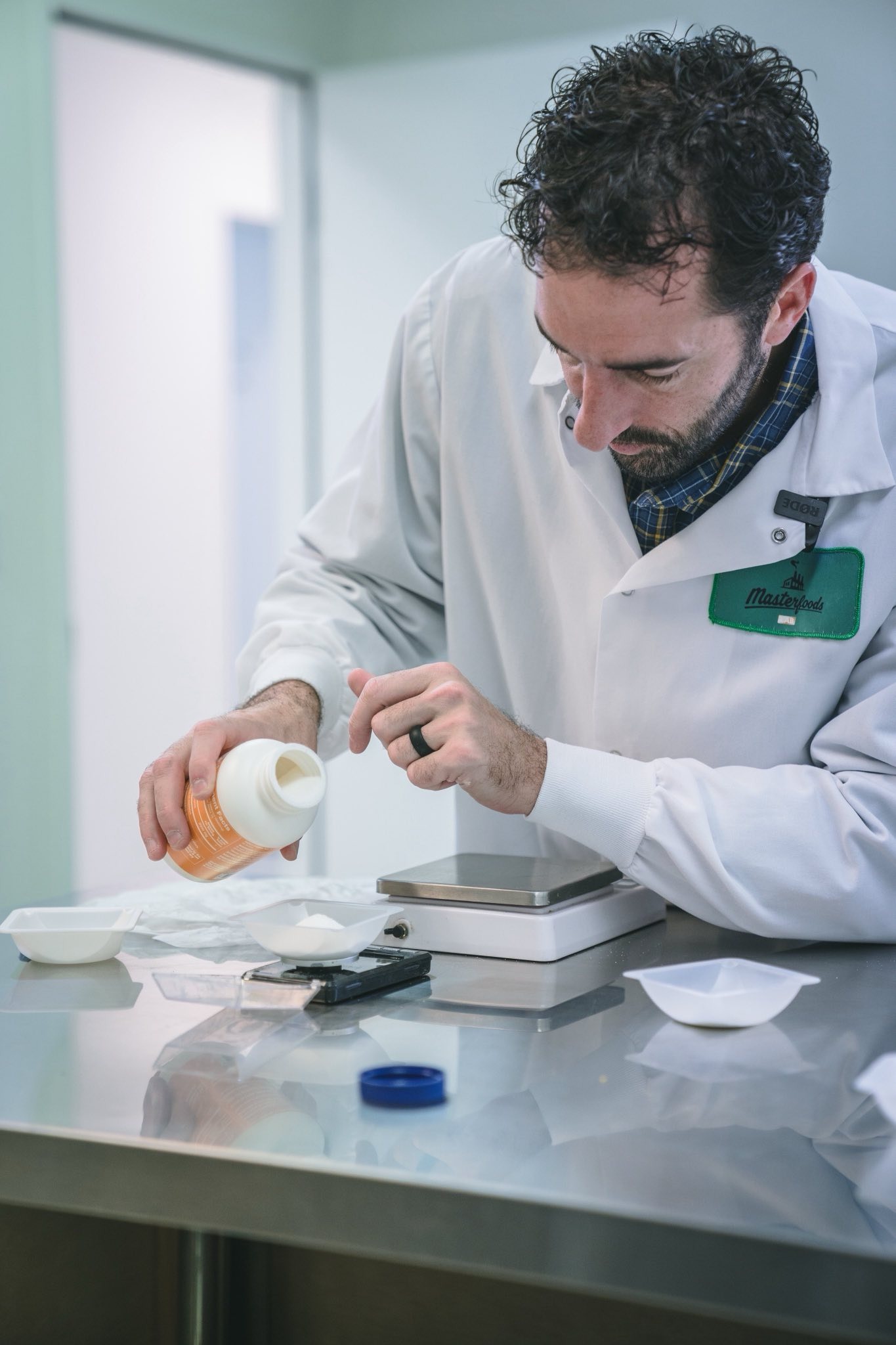
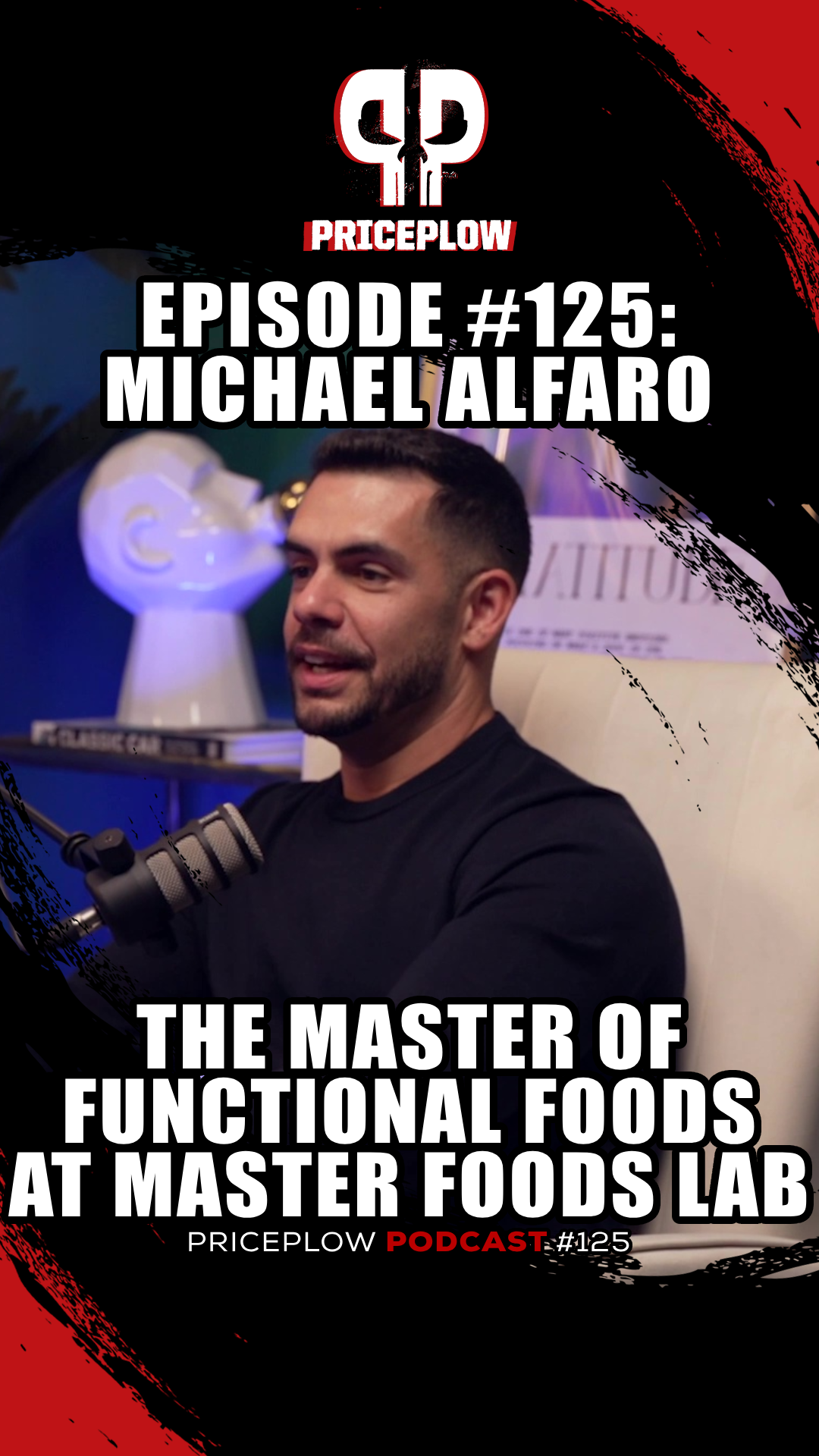


Comments and Discussion (Powered by the PricePlow Forum)